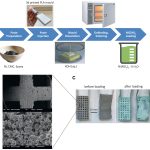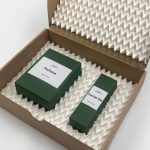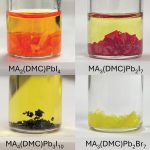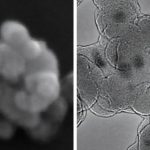New 3D electrode design stores energy 4x faster and slashes costs by 75%
Scientists from Delft University of Technology have developed an advanced 3D electrode design that makes the Battolyser—a unique combination of a battery and an...
New microbubble air purification system could clean air without filters
A team of engineers has created an eco-friendly air purification system inspired by how the human body breathes and circulates blood.
Unlike traditional air filters...
World’s first diamond battery could last thousands of years
Scientists and engineers from the University of Bristol and the UK Atomic Energy Authority (UKAEA) have created the world’s first diamond battery, a groundbreaking...
MIT scientists develop biodegradable material to replace harmful microplastics
Microplastics are tiny plastic particles found everywhere on Earth, causing environmental harm.
They come from sources like tire wear, clothing fibers, and plastic packaging, but...
Scientists find way to recover rare earth metals from waste magnets
Korean researchers have developed a groundbreaking technology to recover rare earth metals like neodymium (Nd) and dysprosium (Dy) from waste permanent magnets.
Rare earth metals...
Scientists unlock the secrets of superconductivity in iron-based materials
Scientists from the University of California, Irvine (UCI) have made a breakthrough in understanding how superconductivity works in an iron-based material.
Their findings, published in...
Origami packaging: A sustainable alternative to plastic
A team of Finnish researchers has developed a groundbreaking technology that uses origami-inspired folding techniques to create sustainable, fiber-based packaging materials.
Led by the VTT...
New silicone ink makes complex 3D printing designs a reality
Researchers at Lawrence Livermore National Laboratory (LLNL) have developed a new silicone-based ink that could transform 3D printing.
This breakthrough allows for creating larger, taller,...
Scientists create color-changing materials for smart technologies
Scientists at Nanyang Technological University (NTU) have created a new kind of material that changes color when heated, which could lead to exciting new...
New nanocrystals could fight bacteria using only visible light
Scientists at Rice University have developed a special type of nanocrystal that can kill bacteria in water when exposed to visible light.
These tiny structures,...









